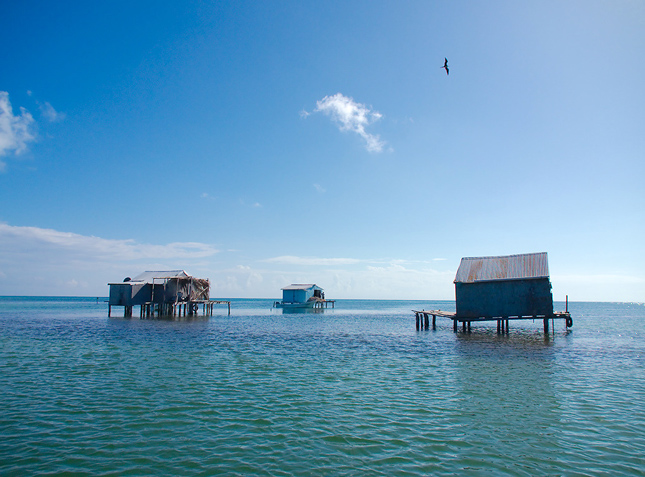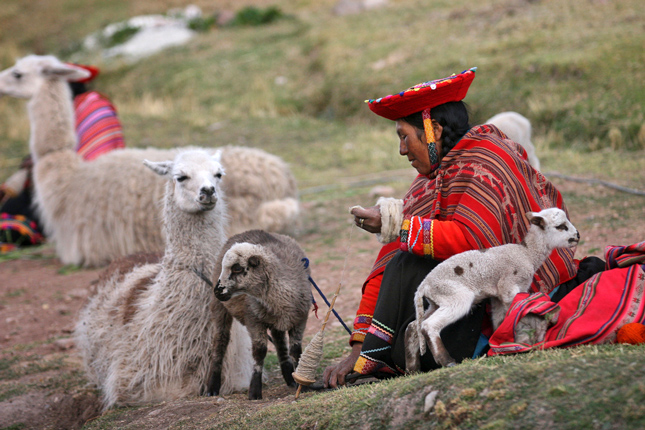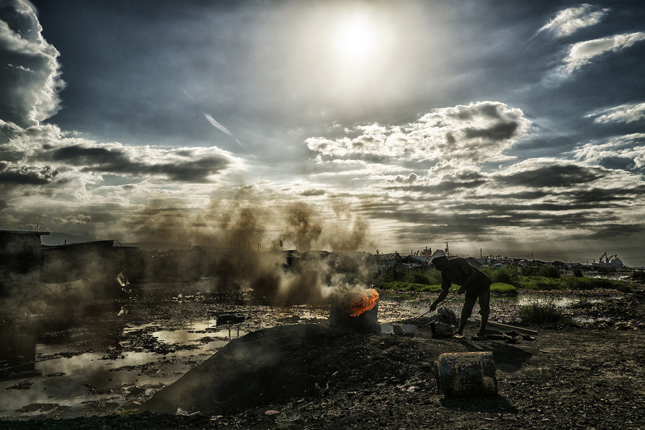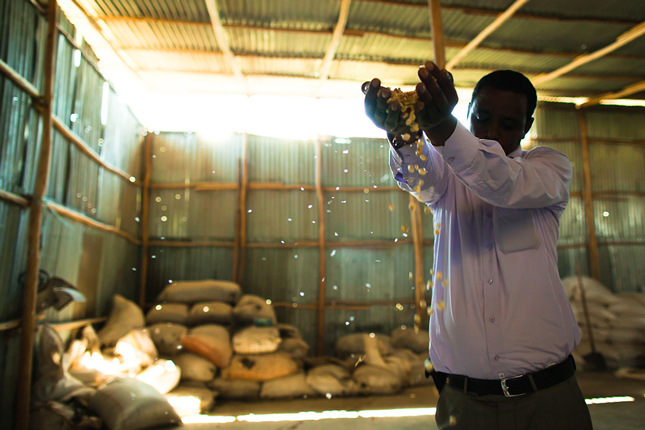-
Andrew Revkin, Dot Earth
On the Path Past 9 Billion, Little Crosstalk Between UN Sessions on Population and Global Warming
›September 22, 2014 // By Wilson Center Staff
The United Nations and the streets of Manhattan are going into global warming saturation mode, from Sunday’s People’s Climate March through the Tuesday climate change summit convened by Secretary General Ban Ki-moon and on through an annual green-energy event called Climate Week.
-
Haleh Esfandiari, The Wall Street Journal
ISIS’s Cruelty Toward Women Gets Scant Attention
›September 11, 2014 // By Wilson Center Staff
Tucked away in a recent New York Times story on military operations against ISIS by Iraqi special forces and the Kurdish Peshmerga was a brief description of what these troops discovered when they entered a village in Iraq that had been occupied by ISIS fighters. A naked woman, tied to a tree, who had been repeatedly raped by ISIS fighters. Another woman was discovered in a second village, similarly naked, tied down and repeatedly raped. The fighters, it appears, are “rewarded” by being allowed to have their way with captured women.
-
Roger-Mark De Souza et al., Outreach
Re-Framing Islands as Champions of Resilience
›September 10, 2014 // By Wilson Center Staff
Island communities, particularly those from small island developing states, are often reported in policy documents, academic papers and mainstream media as being “most vulnerable” to climate change and disasters. While such a classification might serve to raise awareness of their plight, or be used as impetus for global action, this approach can also result in unintended (and damaging) attitudes and consequences. This is well-illustrated by recent off-the-record discussions with several donors and policy-makers who have inappropriately implied it is “too late” to “save the islands,” given their vulnerability to current and impending climate change impacts.
-
Jacob Glass, PassBlue
New Investment Law in Peru Undermines Rights of Indigenous Women
›August 22, 2014 // By Wilson Center Staff
A new law in Peru encouraging investment in the country’s extractive industries has reignited debate on the lack of power indigenous women have in the mostly rural societies where they often live. The International Indigenous Women’s Forum, which drew more than 60 native women from across the world to Peru last month, highlighted this important issue.
-
Alissa J. Rubin and Tim Arango, The New York Times
Rebels Capture Iraq’s Largest Dam
›August 8, 2014 // By Wilson Center StaffSunni militants captured the Mosul dam, the largest in Iraq, on Thursday as their advances in the country’s north created an onslaught of refugees and set off fearful rumors in Erbil, the Kurdish regional capital.
-
Melinda Harm Benson and Robin K. Craig, Ensia
The End of Sustainability?
›July 30, 2014 // By Wilson Center Staff
The time has come for us to collectively reexamine – and ultimately move past – the concept of sustainability. The continued invocation of sustainability in policy discussions ignores the emerging realities of the Anthropocene, which is creating a world characterized by extreme complexity, radical uncertainty, and unprecedented change. From a policy perspective, we must face the impossibility of even defining – let alone pursuing – a goal of “sustainability” in such a world. It’s not that sustainability is a bad idea. The question is whether the concept of sustainability is still useful as an environmental governance framework.
-
Lisa Palmer, Future Food 2050
The Politics of Food Technology Innovation for Africa
›July 22, 2014 // By Wilson Center Staff
As a boy growing up on the shores of Lake Victoria in Kenya, Harvard international development professor Calestous Juma noticed a thing or two about innovations designed to bring more food into his community. He noticed, for instance, that the fishermen were always tinkering with new ways to trap fish while his father, a carpenter, would build the traps. He also noticed that his grandmother, a peanut grower, and other farmers who grew traditional crops such as sweet potatoes, struggled with ways to increase production beyond simply planting the best quality seeds and tubers.
-
Brian Kahn, Climate Central
Weather Disasters Have Cost the Globe $2.4 Trillion
›July 17, 2014 // By Wilson Center Staff
Weather- and climate-related disasters have caused $2.4 trillion in economic losses and nearly 2 million deaths globally since 1971 according to a new report. While the losses are staggering, the report also shows that we have learned from past disasters, lessons the world will need as development continues in hazardous areas and the climate continues to change.
Showing posts by Wilson Center Staff.










